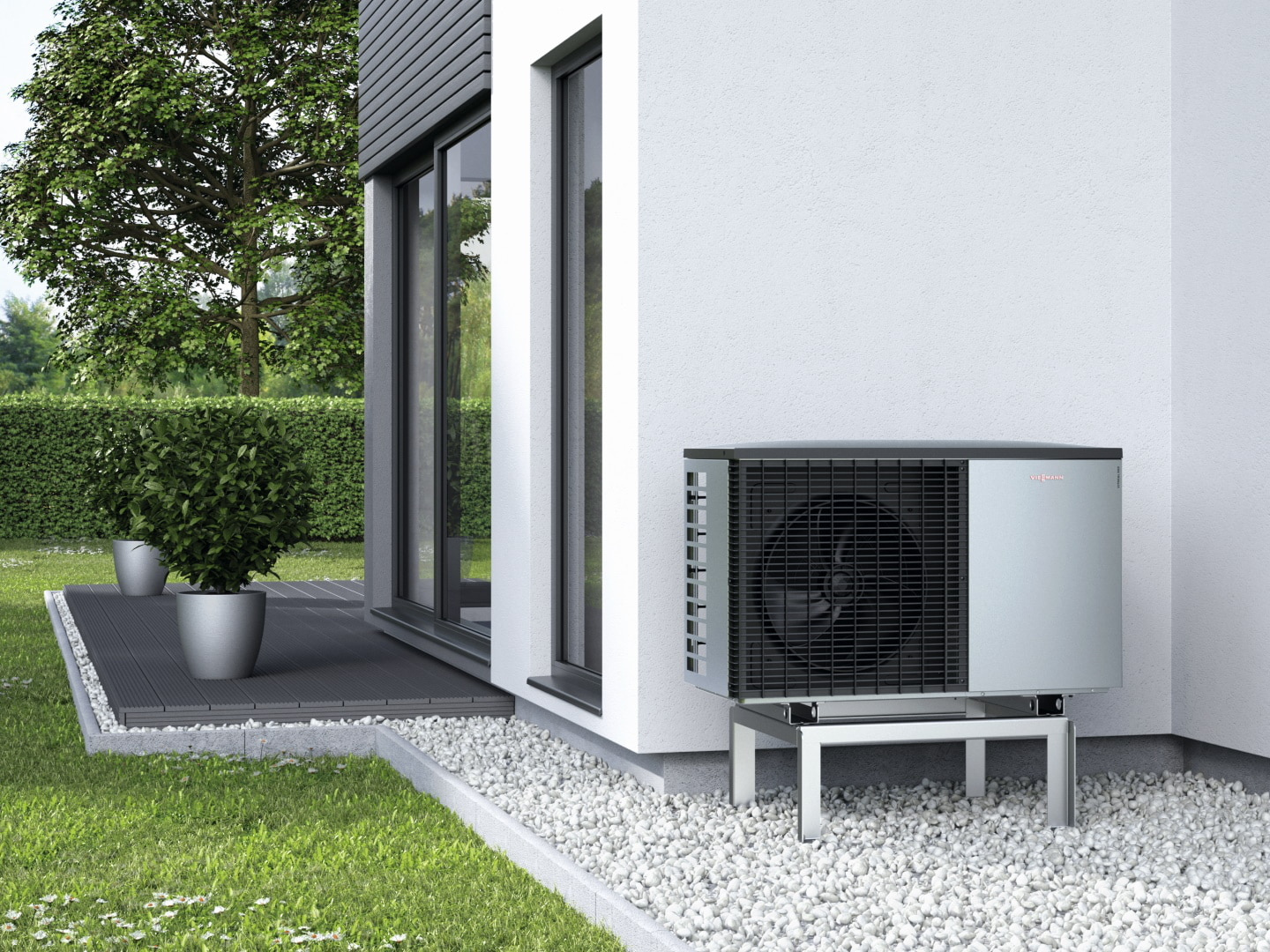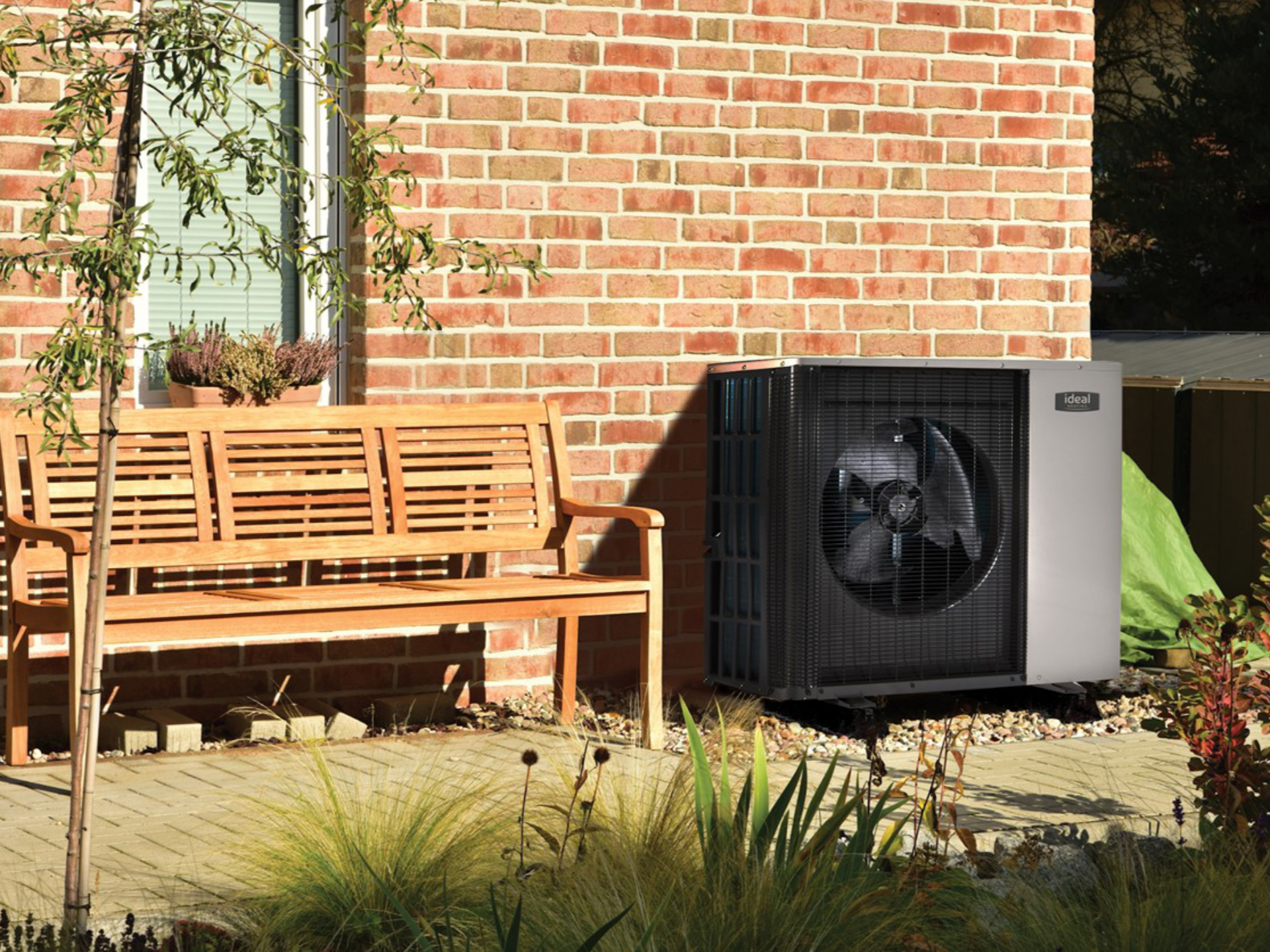
Image Credit: Viessmann
What is a heat pump and how does it work?
Heat pumps are all over the news, with the government keen to push people towards this eco-friendly heating source rather than using fossil fuel-burning gas boilers. If you’re wondering, ‘What is a heat pump and how does it work?’, you’ve come to the right place.
If you’re not sure what a heat pump is, the chances are that you’re not alone. Despite heat pumps having been around for several years and even with recent publicity, they’re still a relatively new technology. In this article, we’ll tell you everything you need to know about them.
What is a heat pump?
A heat pump is an alternative to a traditional boiler, using electricity rather than gas. And, rather than heating water purely with electricity, a heat pump harnesses heat from either the air (an air source heat pump) or the ground (a ground source heat pump) and amplifies it to provide heat. Think of them a bit like a fridge in reverse.
An air source heat pump is located above ground and is typically installed at the side or rear of your home. It collects air from outside as its heat source.
In this system, a liquid refrigerant is passed around the system. External air is blown over refrigerant-filled coils, which causes the liquid to evaporate. The heat pump then compresses the gas, generating heat, which can then be transferred to hot water pipes to warm your home or heat a tank for hot water. This process causes the refrigerant to turn back into a liquid, and the process repeats.

A ground source heat pump collects heat through a series of plastic pipes laid in the ground, a few metres deep. At this depth, the ground temperature is pretty constant between 7°C and 10°C, no matter the temperature above ground. Either refrigerant or a combination of water and anti-freeze are passed through the pipes, absorbing heat from the ground, which is taken inside. This mixture is the compressed, and the heat extracted.
What are the benefits of a heat pump?
Heat pumps are a renewable energy source, and can lead to huge savings on your home’s carbon footprint, in some cases up to 50% compared to a traditional gas boiler. These systems are fairly reliable – they operate like a fridge but in reverse, and the technology will rarely go wrong with annual checks and maintenance.
As a heat pump harnesses heat and transfers it inside, they’re incredibly efficient. Heat pump efficiency is measured by the seasonal performance factor (SPF), which is the average Coefficient of Performance (COP) measured over the heating season, and taking into account variations in outdoor temperature. Heat pumps are most efficient when it’s warm, but still work in cold weather.
The COP is the ratio of heat output in kWh to the input electricity in kWh. A typical air source heat pump has an SPF of 2.8, which means that for every kWh of electricity, 2.8kWh of heat is output. According to the Fraunhofer Institute in Germany, the SPF for ground source heat pumps is 4.1.
As a comparison, a gas boiler would have a rating of around 0.8 (they are, on average, 80% efficient). That is, for every kWh input of gas, a boiler outputs only 0.8kWH of heat, with the rest lost.
Even though electricity is more expensive than gas, air source heat pumps generally have similar running costs to a gas boiler, while a ground source heat pump should be slightly cheaper.
Due to their renewable nature, heat pumps are eligible for the government’s Boiler Upgrade Scheme, which offers £7,500 grants towards installation.
What are the drawbacks of heat pumps?
While an air source heat pump is relatively easy to install with minimal upheaval, a ground source heat pump installation can be costly and disruptive. An air source heat pump has quite a small footprint on the exterior and interior of your home; however, a ground source heat pump unit is much larger, requiring more space. All this may lead to the conclusion that air source heat pumps are a better option for retrofitting a property.
There have historically been some complaints about the noise of air source heat pumps, which dictates where they can be placed under permitted development rules. However, modern technology has improved on this, with many air source heat pumps now designed to be quieter.
Flow temperatures on heat pumps are generally lower than with boilers, producing water at around 50C° or lower; a typical boiler will normally be set to 70C°. That makes heat pumps better for underfloor heating, which operates at lower temperatures, or homes with larger radiators.
Some heat pumps can heat water to higher temperatures, but at the expense of efficiency, therefore costing more to run.

For hot water, you’ll also need a hot water cylinder. Hot water should be stored at around 65C° to prevent harmful bacteria, which can mean that a traditional immersion heater has to be used to top up the water tank’s temperature.
Is my home suitable for a heat pump?
Because of the lower temperature produced by a heat pump, they work best with homes that are well-insulated and air-tight, making less of a demand on a home’s heating system. With this in mind, to get the best results from a heat pump, your home should be well-insulated and have energy-efficient windows and doors, so that your home has a healthy EPC report.
Your home’s last EPC report can be checked via the Simple Energy Advice website as part of your Green Home’s Grant application.
You can test if your home can handle a heat pump by turning down the flow temperature on your boiler (don’t touch the hot water temperature) to 50C°, and see if your house stays warm – just be warned that your house may take longer to heat up. You can turn the flow temperature down lower to see if you can run your home on even more efficient temperatures.
For installing a ground source heat pump where pipes are laid in narrow trenches, you’ll require a large amount of land. A typical 8kW output heat pump would require 200 metres of trench, across several loops, meaning an overall area of 400 square metres required.
There are also options to lay pipes vertically, much deeper into the ground. However, this requires specialist equipment to drill boreholes, which can be an expensive process.
How much does a heat pump cost?
The cost of the heat pump, installation and potential groundworks vary depending on the type of pump and the home it’s being installed in.
An air source heat pump typically costs between £7,000 and £13,000, depending on the size, although you may be able to get £7,500 back from the government through the Boiler Upgrade Scheme.
A ground source heat pump is eligible for the same grant, although these systems are more expensive. According to GreenMatch, a system costs between £14,500 and £45,000.




